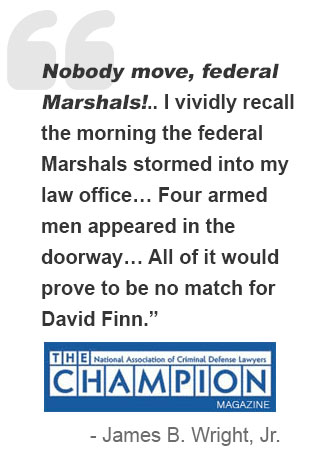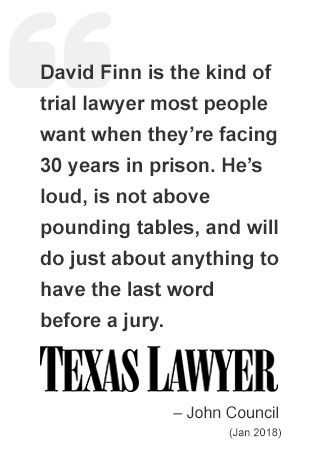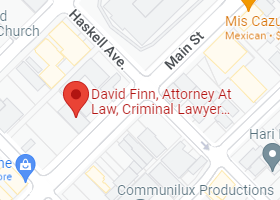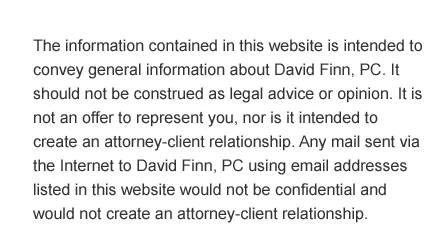


Nice Motion by Clint Broden
UNITED STATES DISTRICT COURT
SOUTHER DISTRICT OF IOWA
DAVENPORT DIVISION
UNITED STATES OF AMERICA, CRIMINAL ACTION NO.
)
Plaintiff, ) 3:03-CR-80
)
v. )
)
JOHN ADAMS THROPAY, )
)
Defendant. )
)
SUPPLEMENT TO MOTION TO VACATE , SET ASIDE OR CORRECT SENTENCE UNDER 28 U.S.C. § 2255BY A PERSON IN FEDERAL CUSTODY
F. Clinton Broden
Tx. Bar 24001495
Broden & Mickelsen
2707 Hibernia St.
Dallas, Texas 75204
214-720-9552
214-720-9594 (facsimile)
TABLE OF CONTENTS
TABLE OF CONTENTS i
TABLE OF AUTHORITIES ii
I. ROADSIDE VIDEO 1
II. TROOPER GUILLâS TRIAL TESTIMONY 4
III. DISCUSSION 6
A. Ineffective Assistance of Counsel 6
B. Mr. Thropayâs Consent to Search was not Valid and No Reasonable Suspicion Existed to Otherwise Search His Vehicle. 7
1. Principles of Law 7
2. Precedent 9
a. United States v. Jones, 234 F.3d 234 (5th Cir. 1999) 9
b. United States v. Dortch, 199 F.3d 193 (5th Cir. 1999) 10
c. United States v. Santiago, 310 F.3d 336 (5th Cir. 2002) 12
d. United States v. Perkins, 348 F.3d 965 (11th Cir. 2003) 12
e. United States v. Beck, 140 F.3d 1129 (8th Cir. 1998) 14
f. United States v. Jones, 269 F.3d 919 (8th Cir. 2001) 16
3. Instant Case 17
IV. CONCLUSION 19
CERTIFICATE OF SERVICE 21
TABLE OF AUTHORITIES
Illinois v. Caballes, 543 U.S. 405 (2005) 7
Joshua v. Dewitt, 341 F.3d 430 (6th Cir. 2003) 6-7, 19
United States v. Beck, 140 F.3d 1129 (8th Cir. 1998) 14-17, 19
United States v. Dortch, 199 F.3d 193 (5th Cir. 1999) 8, 10-12, 17, 19
United States v. Jones, 234 F.3d 234 (5th Cir. 1999) 9-10, 12, 17, 19
United States v. Jones, 269 F.3d 919 (8th Cir. 2001) 8, 16
United States v. Lambert, 46 F.3d 1064 (10th Cir. 1995) 8
United States v. Perkins, 348 F.3d 965 (11th Cir. 2003) 13-14, 18
United States v. Santiago, 310 F.3d 336 (5th Cir. 2000) 8, 12-13, 17, 19
United States v. Wood, 106 F.3d 942 (10th Cir. 1997) 19
John Adams Thropay has finally obtained the videotapes of his roadside stop by Trooper Bryan Guill which ultimately led to the seizure of the drugs for which he was convicted. The videotapes were introduced at trial as Governmentâs Exhibits 1 and 2 and a combined videotape is submitted as Attachment A to this Supplement. As discussed below, the videotape establishes beyond peradventure that Mr. Thropay had a meritorious suppression motion which his trial counsel failed to research and pursue.
I. ROADSIDE VIDEO
The videotape of the roadside stop reveals that Mr. Thropay was driving a car, with Sabrina Laprade as a passenger, that was stopped by Iowa State Trooper Bryan Guill at approximately 11:14:00 on February 17, 2003. When Trooper Guill approaches Mr. Thropayâs vehicle, the following discussion takes place through the open driverâs window between Trooper Guill and Mr. Thropay:
1. Trooper Guill tells Mr. Thropay he was going a little fast
2. Trooper Guill asks Mr. Thropay where they (Mr. Thropay and Ms. Laprade) are going and Mr. Thropay responds that they are going someplace warm because their heater is broken
3. Trooper Guill asks where they are coming from and Mr. Thropay responds, âEl Paso.â?
4. Trooper Guill asks where they are coming from today and the response is unintelligible.
5. Trooper Guill asks where their luggage is and Mr. Thropay responds that it is in the trunk.
6. Trooper Guill tells Mr. Thropay that his speed was 90 miles per hour.
At approximately 11:15:14, Trooper Guill returns to his vehicle to run a license check on Mr. Thropayâs vehicle and a records checks on Mr. Thropay and Ms. Laprade. The dispatcher first responds at 11:19:42 and then at 11:22:25 responds again and tells Trooper Guill that Mr. Thropay has a prior conviction for marijuana sale in California. At approximately 11:23:58 before returning to the Mr. Thropayâs vehicle, Trooper Guill asks the dispatcher to locate a drug dog to come to the scene.
Trooper Guill returns to Mr. Thropayâs car at 11:24:31 and orders Mr. Thropay to come back to the patrol car so that he can âexplain the ticket.â? When Trooper Guill and Mr. Thropay return to the patrol car, rather than âexplain[ing] the ticket,â? Trooper Guill peppers Mr. Thropay with a barrage of questions, including:
-Who did you buy the car from?
-Why doesnât the heater work?
-Where are you coming from?
-Why did you take that route?
-Where are you going?
-Do you have an insurance card?
-When did you buy the car?
-How do you know Ms. Laprade?
-How long have you been dating Ms. Laprade?
-Is there anything in the car that I should know about?
-Do you have any objection if I go through the car?
-Do you still live in California?
During the entire time, the videotape establishes that Trooper Guill retained Mr. Thropayâs license.
At 11:29:50, Trooper Guill again asks the dispatcher to locate a drug dog and tells the dispatcher, âLet them know it is pretty good!â? At 11:33:28, the dispatcher notifies Trooper Guill that a dog has been located.
At 11:34:01, Trooper Guill approaches the passenger side of the vehicle and questions Ms. Laprade as to where she and Mr. Thropay were headed, where they came from and if there was anything in the car that he should know about and he then brings Ms. Laprade back to the patrol car.
From 11:39:22-11:41:17, Trooper Guill searches Mr. Thropay’s car after obtaining his signature on a consent to search form. It is not until 11:42:18 that he tells Mr. Thropay that he ordered a drug dog and that it would be there shortly. In the interim he asks Mr. Thropay what he does for a living and Mr. Thropay tells him he does âdata entry.â?
The drug dog arrives at approximately 12:08:24, almost one hour after Trooper Guill originally stopped Mr. Thropay. During the entire time, Trooper Guill retained Mr. Thropayâs license and resisted providing him the speeding citation. Indeed, the speeding citation that was ultimately issued does not contain Mr. Thropayâs signature and instead states âIn Jail.â? See Attachment C hereto.
II. TROOPER GUILLâS TRIAL TESTIMONY
Trooper Guill testified at trial that, upon his stop of Mr. Thropayâs vehicle, it appeared âoddâ? that âthe passenger and driver were wearing a stocking hat and coat.â? See Tr. at 12:14-18. Of course, the videotape indicates that Mr. Thropay told him that the carâs heater was not working. Trooper Guill admitted on cross examination that âwith a broken heater in the middle of February it wouldnât be unusual to be wearing a coat and stocking cap in a car.â? Id. at 51:18-21.
Trooper Guill also testified that it was âoddâ? to him that the vehicle was registered in Texas when both Mr. Thropay and Ms. Laprade had California identification. Id. at 12:20-22. He also found it âoddâ? that there was no luggage visible in the vehicle. Id. at 12:23:24. Of course, the videotape indicates, quite naturally, that the luggage was ultimately found in the closed trunk of the sedan.
Trooper Guill claimed that the âdriver appeared to be a little nervousâ? and â[t]he passenger avoided eye contactâ? with him. Id. at 12:18-19. Nevertheless, he acknowledges on the videotape that Ms. Laprade was sleeping when he originally stopped the vehicle.
Trooper Guill testified that, given these âodd facts,â? he brought Mr. Thropay back to his patrol car to question him. Id. at 16:2:14. He claims to have made âcasual conversationâ? with Mr. Thropay at this point as to where he and Ms. Laprade were coming from and where they were going. Id. at 16:10-17. He also claimed, although his testimony is belied by the videotape, that it was only after he took Mr. Thropay to the patrol car that Mr. Thropay told him the carâs heater was broken. Id. at 16:21-23.
Trooper Guill told the jury that, following the questioning in the patrol car, he obtained Mr. Thropayâs oral and written consent to search the vehicle. Id. at 18:23-19:3. As noted above, Trooper Guill testified under oath at trial that it was only at this point that he requested the K-9 unit, although the videotape clearly shows Trooper Guillâs testimony to be perjurious. Id. at 23:17-20. Likewise, Trooper Guill was adamant when he told the jury at trial that he âdid not search the vehicle or get into the vehicle before the dog arrived. Id. at 52:1-2. It was after.â? The fact that the videotape shows Trooper Guill searching and entering the vehicle approximately one-half hour before the arrival of the K-9 unit, clearly indicates that this testimony is also false.
III. DISCUSSION
A. Ineffective Assistance of Counsel
There can be no question that the failure to pursue a suppression motion based upon an unconstitutional search of a vehicle following a roadside stop that yields incriminating evidence constitutes ineffective assistance of counsel. Indeed, the United States Court of Appeals for the Sixth Circuit addressed this very question in Joshua v. Dewitt, 341 F.3d 430 (6th Cir. 2003). In Joshua, an Ohio State Trooper, following a traffic stop of Joshuaâs vehicle for speeding, learned that Joshua was âa known drug courier.â? Id. at 434-435. In addition, the trooper claimed that Joshua was ânervous and restlessâ? and that, when he questioned Joshua about his travel plans, the route ââdidnât make any sense what so ever.â? Id. at 435. There was also a discrepancy in the rental car papers for the car Joshua was driving. Id. at 443. Consequently, the trooper detained Joshua until he could arrange for a K-9 search for Joshuaâs car. Id. at 435. The K-9 search ultimately discovered a large quantity of crack cocaine. Id.
The Sixth Circuit in Joshua held that, despite a state court ruling to the contrary and the deference it was required to give the state court findings under the Antiterrorism and Effective Death Penalty Act of 1966, Joshuaâs counsel was ineffective for failing to challenge the basis for his continued detention pending the K-9 search of his vehicle. In reaching this holding, it concluded that the discrepancy in the rental car papers, Joshuaâs alleged nervousness, and the trooperâs knowledge of Joshuaâs criminal history did not support Joshuaâs continued detention until the arrival of a K-9 unit. Id. at 443-452. Similarly, the Court found that taking route that âmade no sense to the trooperâ? was ânot a fact suggestive of illegal conduct.â? Id. at 445.
Coincidentally, the âoddâ? factors alleged in Joshua are remarkably similar to the âoddâ? factors recounted by Trooper Guill in the instant case. One of the only distinguishing factors is that Joshua, unlike Mr. Thropay, was apparently not asked to consent to the ultimate search of his vehicle. But, as explained below, given the facts of the instant case this distinction is without Fourth Amendment relevance.
B. Mr. Thropayâs Consent to Search was not Valid and No Reasonable Suspicion Existed to Otherwise Search His Vehicle.
1. Principles of Law
There are two well established principles of law that should guide this Courtâs determination as to whether Mr. Thropay would have had a valid motion to suppress.
First, when a person is stopped for a traffic violation â[a] seizure that is justified solely by the interest in issuing a…ticket to the diver can become unlawful if it is prolonged beyond the time reasonably required to complete the mission.â? Illinois v. Caballes, 543 U.S. 405, 407 (2005). Indeed, cases from this circuit as well as other circuits establish that a traffic stop may not last any longer than is necessary to complete the investigative purposes of the traffic stop unless, while that investigation is being completed, the state can show that the investigating officer developed âreasonable suspicionâ? to detain the person for some other reason. See, e,g., United States v. Jones, 269 F.3d 919, 925 (8th Cir. 2001) (âAfter Trooper DeWitt had completed this initial investigation and determined that Jones was neither tired nor intoxicated, that his license and registration were valid, and that there were no outstanding warrants for his arrest, then the legitimate investigative purposes of the traffic stop were completed.â?).
Second, once a court determines that a traffic stop should have concluded under the principle outlined above, a personâs consent to the search of his vehicle cannot be considered voluntary when the investigating officer does not return the personâs license prior to obtaining the consent. See United States v. Dortch, 199 F.3d 193, 198 (5th Cir. 1999), citing, United States v. Lambert, 46 F.3d 1064, 1068 (10th Cir. 1995). Indeed, as noted by the United States Court of Appeals for the Tenth Circuit in Lambert what began as a consensual encounter quickly became an investigative detention once the agents received Mr. Lambert’s driver’s license and did not return it to him. Id.
The above principles of law are perhaps best explained in United States v. Santiago, 310 F.3d 336, 341-42 (5th Cir. 2000):
During a traffic stop, an officer can request a driver’s license, insurance papers, and vehicle registration; he or she may also run a computer check and issue a citation. The officer may detain and question the subjects of a traffic stop during the time a computer check is being conducted…..
However, a Fourth Amendment violation occurs when the detention extends beyond the valid reason for the stop. Once a computer check is completed and the officer either issues a citation or determines that no citation should be issued, the detention should end and the driver should be free to leave. In order to continue a detention after such a point, the officer must have a reasonable suspicion supported by articulable facts that a crime has been or is being committed. (citations omitted)
2. Precedent
There are also several cases on point, in addition to the Joshua case discussed above, that should guide this Courtâs determination as to whether Mr. Thropay would have had a valid motion to suppress.
a. United States v. Jones, 234 F.3d 234 (5th Cir. 1999)
Jones is almost directly on point. In that case, the driver, Daniel, was stopped for speeding. Jones, 234 F.3d at 237. The officers that stopped Daniel asked him and his passenger, Jones, a series of questions. Id. The officers took Daniel and Jones back to the patrol car and âinitiated a conversation with Daniel concerning the issuance of the warning ticketâ? and requested a records check while asking more probing questions of Daniel and Jones Id. at 237-38. Three minutes after the records check was completed, the officers asked Daniel if he would consent to the search of the vehicle and he did consent. Id. at 238. Just like the instant case, at the time the officers in Jones requested permission to search, they had retained Danielâs license and warning citation. Id. Ultimately, drugs were discovered. Id.
The Fifth Circuit first held that Danielâs consent to search was the fruit of an unlawful detention because it occurred after the speeding investigation should have been completed and while the officers retained his license and the ticket:
At least three minutes transpired from the response by the dispatcher to the time that Russell asked for consent to search the car. Except for obtaining Daniel’s signature, Russell had completed the warning citation. But instead of obtaining Daniel’s signature and returning his driver’s license and rental agreement, Russell chose the more dilatory tactic of exiting the car, returning Jones’s identification papers before doing the same for Daniel, and, most importantly, repeating to Jones the same questions that were asked of him before. After the computer checks were finished, any delay that occurred with respect to the warning citation being meted out was due to the officers’ action or inaction. The basis for the stop was essentially completed when the dispatcher notified the officers about the defendants’ clean records, three minutes before the officers sought consent to search the vehicle. Accordingly, the officers should have ended the detention and allowed the defendants to leave. And the failure to release the defendants violated the Fourth Amendment. The district court erred by not so holding.Id. at 241.
The Fifth Circuit then considered whether, regardless of consent, the officers had âreasonable suspicionâ? to search the car based upon the fact that both Daniel and Jones gave inconsistent answers to questions and that Daniel had a prior arrest on crack cocaine charges. It held that these reasons did not constitute âreasonable suspicionâ? to independently support the search in that case.â? Id. at 248-49.
b. United States v. Dortch, 199 F.3d 193 (5th Cir. 1999)
In Dortch, the defendant was legitimately stopped for a traffic violation. Dortch, 199 F.3d at 195. Like the instant case, following the stop, the officer noted that the car was not registered to either the driver, Dortch, or the passenger. Id. at 195. Like the instant case, the driver and the passenger gave conflicting answers to where they had been. Id. at 196. Like the instant case, the officer who stopped the car did not see any luggage . Id. Like is the instant case, the officer claimed Dortch was ânervous.â? Unlike the instant case, the passenger and driver also gave conflicting answers as to how they came into possession of the car. Id. While the officer was running a records check, he obtained Dortchâs permission to search the trunk but not the vehicle. Id. The officer then informed Dortch that, although he was free to go, his car would be detained pending a K-9 search. Id. Ultimately, the K-9 alerted to drugs on Dortchâs person, rather than in his vehicle, and Dortch consented to a pat down of his body where drugs were located. Id.
Dortch appealed the denial of his suppression motion. The Fifth Circuit first noted correctly that Dortch could not successfully claim that any detention pending the computer check on his license was impermissible. Id. at 198. Nevertheless, the Court next noted that, once the records check was completed, the continued detention of Dortch had to be supported by reasonable suspicion. Id. at 199. It then held that, âthe confusion as to the relationship of Dortch to the proper renter of the vehicle, combined with Dortch’s absence as an authorized driver on the rental agreement and the allegedly inconsistent answer about the stay in Houston, gave rise only to a reasonable suspicion that the car might have been stolenâ? and not that the driver was involved with drug activity to justify detention pending the arrival of the K-9. Id. Likewise, it held that Dortchâs alleged ânervousnessâ? also did not justify continued detention after the traffic stop investigation should have concluded.
For purposes of applying Dortch to the instant case, it is significant that the government argued that Dortch consented to the search of his body. Nevertheless, the Fifth Circuit held that Dortch had not been free to go at the time he gave consent because the officer had retained his license and rental papers at the time consent was obtained and, consequently, Dortchâs consent was fruit of the illegal detention that took place following the time he should have been released when the records check was completed. Id. at 202.
c. United States v. Santiago, 310 F.3d 336 (5th Cir. 2002)
The Fifth Circuit, in Santiago, again addressed the issues that confront this Court in the instant case. There, a Louisiana State Trooper conducted a traffic stop of Santiago and his vehicle because of a flashing light emanating from the vehicle. Id. at 337-38. Upon approaching the vehicle, the trooper noted that the light was from a crystal ball hanging from the carâs rear view mirror and concluded that this was illegal under Louisiana law. Id. The trooper proceeded to ask Santiago and his passenger numerous questions. Id. After some time, the trooper ran a check on Santiagoâs license. He then proceeded to ask Santiago additional questions once the records check was complete and obtained Santiagoâs consent to search the vehicle after asking these additional questions. Id. at 339.
The Fifth Circuit, like it did in Jones and Dortch, concluded that, once the records check was complete, the stop should have been concluded. Id. at 342 (âTrooper Raley’s original justification for the stop ended, however, at the time the computer check was completed. At that point, there was no reasonable or articulable suspicion that Santiago was trafficking in drugs, but Raley nonetheless continued his interrogation after the original justification for the stop had ended.â?). It then held that, because the consent to search occurred during the illegal detention, it did not support the resulting search. Id. at 343 (â[U]nder the circumstances of this case, the consent to search was not an independent act of free will, but rather a product of the unlawfully extended detention.â?).
d. United States v. Perkins, 348 F.3d 965 (11th Cir. 2003)
Here, an Alabama patrolman stopped Perkins for a traffic violation. Perkins, 348 F.3d at 967. After the patrolman completed a driverâs license check and issued a warning ticket and âhe was finished with that portion of his investigation relating to the traffic stop,â? the patrolman âcontinued to detain Perkins because of his nervousness; what he perceived as Perkins’ evasive behavior in response to his questions; and his hunch that Perkins was being untruthful about his destination.â? Id. at 968. Like Trooper Guill in this case, the patrolman then pursued his hunches with further questioning. Ultimately, the patrolman in Perkins asked for permission to search the car and Perkins refused. Id. The patrolman then requested a K-9 search that resulted in the seizure of drugs. Id. The United States Court of Appeals for the Eleventh Circuit held the search unconstitutional.
The Perkins Court first concluded that âthe circumstances here do not give rise to the requisite reasonable suspicion justifying continued detention of Perkins and [his passenger] after the warning ticket had been issued.â? Id. at 970. The government then argued that the following circumstances created âreasonable suspicionâ? to extend the stop beyond the time necessary to conclude the traffic violation:
(1) Perkins’ nervousness; (2) the “odd behavior” of Perkins in repeating the questions [the patrolman] asked him; (3) Perkins’ possession of a Florida driver’s license while claiming to live in Montgomery, Alabama; and (4) the “inconsistent” statements from Perkins and [his passenger] with regard to whom they were going to see in Greenville, Alabama.Id.
The Eleventh Circuit quickly rejected this argument. Id. (âWe find that these circumstances, separately or cumulatively, cannot support a legitimate inference of further illegal activity that rises to the level of objective, reasonable suspicion required under the Fourth Amendment.â?)
e. United States v. Beck, 140 F.3d 1129 (8th Cir. 1998)
In Beck, the United States Court of Appeals for the Eight Circuit confronted a traffic stop of the defendant by an Arkansas patrolman. United States v. Beck, 140F.3d 1129, 1332 (8th Cir. 1998). After speaking to Beck, the officer returned to his patrol car to run a records check. Id. Following the completion of the check, he returned Beckâs license and rental car agreement and asked permission to search the vehicle. Id. Beck nervously declined to give consent. Id. The patrolman then called for a K-9 unit and the dog, once it arrived, alerted on Beckâs car. Id. at 1332-33.
The Eight Circuit first noted â[u]nless Officer Taylor had a reasonably articulable suspicion for believing that criminal activity was afoot, continued detention of Beck became unreasonable after he had finished processing Beck’s traffic violation.â? Id. at 1134. Nevertheless, it also noted (as distinguished from this case), that the initial questioning of Beck after the patrolman returned to the vehicle was âconsensualâ? but only because âOfficer Taylor had already returned Beckâs driverâs license and rental agreementâ? at this juncture and, therefore, Beck was free to go at the time he gave his consent. Id. at 1135. It then went on to hold that, although the encounter was consensual because Beckâs paperwork was returned, it became non-consensual when Beck was informed that, if he refused to consent to a search, a K-9 unit would be called. Id.
Because the search took place after the detention of Beck became non-consensual, the Eight Circuit examined the facts to see if there was independent âreasonable suspicionâ? to justify the non-consensual detention. Id. at 1136-40. Some of these factors match the âoddâ? factors allegedly present in this case, but there were many additional factors that might have supported a âreasonable suspicionâ? determination in Beck that was not present in the instant case:
Here, the government contends that reasonable suspicion for Beck’s renewed detention arose from the following seven circumstances: (1) Beck was driving a rental car which had been rented by an absent third party; (2) the Buick was licensed in California; (3) there was fast food trash on the passenger side floorboard; (4) no visible luggage in the passenger compartment of the automobile; (5) Beck’s nervous demeanor; (6) Beck’s trip from a drug source state to a drug demand state; and (7) Officer Taylor’s disbelief of Beck’s explanation for the trip. Id. at 1137.
Still the Eight Circuit found that these facts did notconstitute independent âreasonable suspicionâ? for the search Beckâs vehicle. Id. at 1137-40.
Some of the Courtâs observations regarding the factors alleged to support âreasonable suspicionâ? in Beck are applicable to the âoddâ? facts identified in the instant case. First, it held that the fact that the rental car was in some other personâs name was not âinherently suspicious.â? Id. at 1137. Second, it observed that it had previously noted that âout-of-state plates are consistent with innocent behavior and not probative of reasonable suspicion.â? Id. Third, it dismissed the âno luggage in the passenger compartmentâ? factor out-of-hand. Id. at 1139 (â[W]e think that this circumstance fails to generate any suspicion of criminal activity. Indeed, motorists are specifically advised by law enforcement agencies, as a crime prevention tip, not to leave their luggage in view.â?). Finally, it was equally dismissive of the officerâs subjective assessment of Beckâs nervousness. Id. (âIt certainly cannot be deemed unusual for a motorist to exhibit signs of nervousness when confronted by a law enforcement officer.â?).
f. United States v. Jones, 269 F.3d 919 (8th Cir. 2001)
A Missouri trooper stopped Jones for moving violations that might have been caused by intoxication. Jones, 269 F.3d at 922. While conducting a records check on Jones, the trooper engaged him in conversation. Id. The trooper then returned Jonesâ paperwork and issued him a warning citation. Id. at 923. He then asked permission to search Jonesâ vehicle and Jones declined. Id. The trooper then called a K-9 unit and the drug dog alerted to drugs. Id. at 923-924.
The Eight Circuit first noted that a seizure had taken place once Jones refused permission to search his vehicle. Id. at 926. It then reviewed whether there was independent âreasonable suspicionâ? to support the seizure. Id. at 926-2. The government relied upon the following alleged factors: â Jones slowed while being passed, his camper wheels crossed traffic lines, he gave an inconsistent answer regarding his prior arrest record, and he acted nervously upon being detained and questioned inside Trooper DeWitt’s patrol car.â? The Court held that the factors did not constitute âreasonable suspicionâ? to justify the seizure. Id. at 929 (âTrooper DeWitt’s detention of Jones past the point necessary to complete his traffic stop investigation exceeded the scope of a lawfully initiated traffic stop. The extended investigative detention was unsupported by a reasonable, articulable suspicion that criminal activity was afoot and therefore violated Jones’s Fourth Amendment right to be free from unreasonable seizure.â?).
3. Instant Case
Applying the foregoing legal principles as well as the precedent discussed above, there can be no doubt whatsoever that Mr. Thropay had been âseizedâ? at the time the K-9 unit was called to his vehicle. Mr. Thropay does not complain of the initial stop nor does he complain of the initial questioning prior to the records check being run. Nevertheless, once Trooper Guill processed the traffic violation and completed the records check, he should have issued Mr. Thropay his citation, returned his license and allowed him to proceed. When Trooper Guill did not allow Mr. Thropay to proceed after processing the traffic violation, an illegal seizure had occurred.
Next, despite Mr. Thropayâs consent to the search of his vehicle, such consent was not valid in that it was fruit of the illegal seizure. As noted consistently by the Fifth Circuit, in Dortch, Jones, and Santiago, the fact that the detention continued past the time it should have been concluded makes any consent obtained during such a period illegal. Likewise, it is significant that, at the time consent was obtained in this case, Trooper Guill had not returned Mr. Thropayâs license. Compare, Beck, 140 F.3d at 1135 (Consensual because license was returned).
Therefore, the only real question is whether there was independent âreasonable suspicionâ? to detain Mr. Thropay for almost an hour in order to conduct a K-9 search of his vehicle. At trial, the trooper identified the following factors: (1) the vehicle was registered in Texas when both Mr. Thropay and Ms. Laprade had California identification; (2) there was no luggage present in the vehicle; (3) the âdriver appeared to be a little nervousâ? and â[t]he passenger avoided eye contactâ? with him. Moreover, giving the government the benefit of the doubt, Trooper Guill learned of a fourth factor- that Mr. Thropay had a conviction for marijuana sale- after conducting the records check but prior to calling for a drug dog and prior to returning Mr. Thropayâs vehicle where he could have concluded the traffic stop.
Of course, factors 2 and 3 were dismissed out of hand by the Eight Circuit in Beck. As to the factor 1, given that Mr. Thropay was now living in Texas it would not be unusual for him to have bought a car in Texas. The simple fact that he did not change his driverâs license does not indicate criminal behavior. See Perkins, 348 F.3d at 971 (â[T]here are many reasons one may have failed to change the license including lack of time because of a recent move, cost, inconvenience, carelessness, or simple laziness.â?). Finally, a driverâs criminal history has been held not to be sufficient to create âreasonable suspicion.â? As noted by the United States Court of Appeals for the Tenth Circuit when analyzing âreasonable suspicionâ? factors to justify a traffic stop:
We have previously cautioned that prior criminal involvement alone is insufficient to give rise to the necessary reasonable suspicion to justify shifting the focus of an investigative detention from a traffic stop to a narcotics or weapons investigation. “If the law were otherwise, any person with any sort of criminal record…could be subjected to a Terry-type investigative stop by a law enforcement officer at any time without the need for any other justification at all.” Given the near-complete absence of other factors which reasonably gave rise to suspicion, the fact that Mr. Wood had previously been convicted of narcotics violations adds little to the calculus. United States v. Wood, 106 F.3d 942, 948 (10th Cir. 1997). See also Jones, 234 F.3d at 248-49.
IV. CONCLUSION
As set forth above, there was no basis to detain Mr. Thropay between what should have been the end of the traffic investigation at 11:24 and the alert of K-9 Freon at 12:09. Consequently, Mr. Thropay had a meritorious suppression motion, supported by precedent, that would have resulted in the suppression of the drugs that were ultimately seized from his vehicle. Moreover, such a motion would have been case dispositive.
Respectfully submitted,
F. Clinton Broden
Tx. Bar 24001495
Broden & Mickelsen
2707 Hibernia St.
Dallas, Texas 75204
214-720-9552
214-720-9594 (facsimile)
CERTIFICATE OF SERVICE
I certify that on July 20, 2006, I caused the foregoing document to be served by electronic means, on:
Gary Hayward, Esq.
United States Attorneyâs Office
110 East Court Avenue
Des Moins, Iowa 50309
F. Clinton Broden
Phone Numbers
Office: (214) 538-6629







